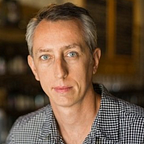Under fascism, a generation of scientific knowledge was lost in Spain
Universities were purged, and professors were exiled
Before Spain’s bloody three-year civil war had even come to an end, the country’s future dictator, Francisco Franco, had already outlined a key part of his fascist strategy: control the intellectual and cultural life of the populace, lest they accumulate ideas and knowledge that could challenge the regime.
The Generalissimo began, in 1937, by dismantling the Board for the Advancement of Studies and Scientific Research (JAE), the central agency responsible for advancing Spanish science research and exchanges with foreign scientists. Although the sciences had flourished in previous decades, Franco and the religious-conservative Nationalist movement he led saw the board as a threat to the political order they planned to impose.
In 1939, immediately upon establishing a one-party autocratic military dictatorship — which remained for 36 years until his death in 1975 — Franco formed the Spanish National Research Council (CSIC) to replace the J.A.E. The new council was meant to bring back a view of science that would make it compatible with conservative Catholic values, mandating it to “restore the classical and Christian unity of the sciences that was destroyed in the 18th Century.” In other words, he wanted to turn back the clock to pre-Enlightenment times.
At the heart of the restoration was Opus Dei — “Work of God” in Latin — an institution of the Roman Catholic Church founded in Spain in 1928 by the Catholic priest and eventual saint Josemaría Escrivá (later made famous by Dan Brown’s The Da Vinci Code). Although it had operated in the shadows of the Catholic Church for more than 20 years, Opus Dei was given final Catholic Church approval in 1950 by Pope Pius XII. Its core teachings center around the idea that everyone is called to holiness and that ordinary life is a path to sanctity.
For Franco, that tenet justified his fascist regime. “We do not believe in government through the voting booth,” he said. “The Spanish national will was never freely expressed through the ballot box. Spain has no foolish dreams.”
Under what became known as the White Terror, Franco imposed his brand of severe repression through torture, concentration camps, and extrajudicial killings that totaled hundreds of thousands of deaths for those who had been labeled liberals, Protestants, Socialists, Communists and anarchists. A defiant Franco struck an unrepentant tone when he said, “I am responsible only to God and history.”
Intellectuals considered uncooperative with the regime were also a favorite target. And at universities throughout Spain, where advancements in the sciences were made, a version of this chilling regime was being put in place.
“The Franco regime defended the literalism of the Bible, which was considered an infallible account, inspired by the word of God,” said Manuel Castillo Martos, a professor at the University of Seville and co-author of Education, Science and Ideology in Spain (1890–1950). “Scientific ideas that contradicted it, such as Darwinist evolution, were considered unacceptable.”
In practice, that meant the formation of “purging committees” in each Spanish university. Made up of pro-Franco individuals, those committees identified academics who were viewed as anti-regime based on their political or religious beliefs. In some cases, academics fled to other countries to continue their research and teach. But many more were forcibly removed from their positions, and some were even jailed.
One of the more dramatic of these cases was that of Antonio de Zulueta. A pioneer in the fields of biology and genetics, he was considered one of his generation’s most promising scientists after training in Madrid, Barcelona, Berlin, and Paris. But almost as quickly as Franco took power in 1939, Zulueta was accused of being anti-Spanish by a purging committee at the University of Madrid. Zulueta had recently traveled to countries considered to be in the “Red Zone” for their leftist politics. And his work included a translation of On The Origin of Species by Charles Darwin — a thinker decidedly unwelcome to Opus Dei or the Francoist regime.
While his brother, Luis, a former minister and ambassador under the previous regime fled Spain, Antonio de Zulueta chose internal exile, with the hope of quickly returning to his laboratory. After a few years of isolation, Zulueta regained his place in the laboratory but without a managerial position or the resources and funding that would allow him to fully resume his research.
Zulueta died in 1971, but his death was not recognized by scientific institutions and journals. In 1987, 16 years after his death (and 11 after Franco’s), Zulueta’s obituary was published in the Bulletin of the Spanish Royal Society of Natural History. It was written by his student Fernando Galan who said that his “true merit far surpasses the public recognition that has been made of him.”
He was just one example. By Franco’s death in 1975, a full generation of Spanish scientific advancement was lost because of purged research, talented scientists in exile, and squandered time.
Today, the Spanish National Research Council remains the primary public institution for research in Spain and, after nearly two decades of effort following Franco’s death, it was able to return to the original spirit of collaborative and progressive science promoted by the J.A.E. nearly 80 years ago.
As Castillo Martos warns in his book, “Science, and knowledge in general, have to develop and progress free from any ideological bonds, be they religious or political. That’s what no dictatorial regime can tolerate or admit.”
